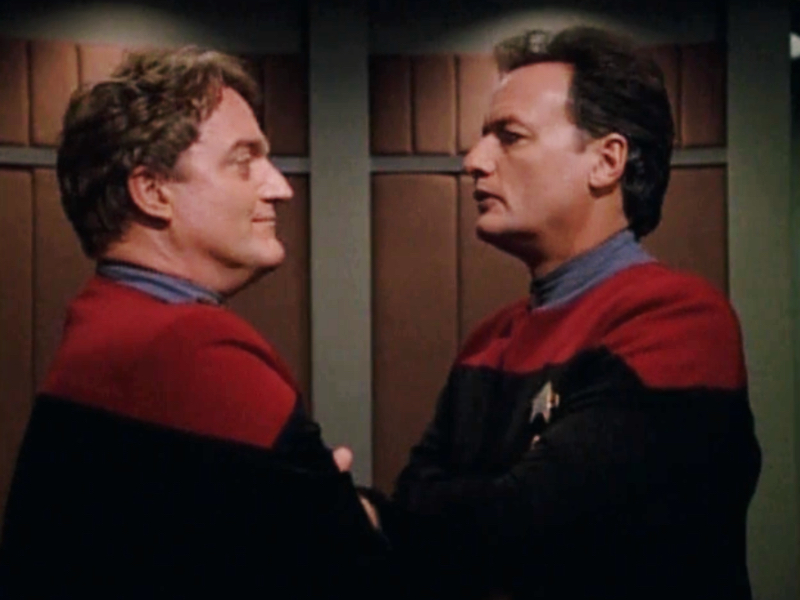
Episode
469
Death Wish
Audio Player
[ Download ]
Q drops by Voyager for a visit, but this Q wants asylum and the freedom to end his life. That’s when Q shows up to tell Q he can’t. Janeway has to decide between death and immortality when Death Wish goes into the Mission Log.
Sponsored by – MasterClass
Sponsored by – Star Trek Spirits Use “RODDENBERRY” at checkout for 10% off!






















Wow, this episode has quite a few heavy ideas to discuss and you only really have an hour, but I think you did well. There are a few things that I feel could be mentioned though:
First off, I was a little surprised that there was no serious discussion of Socrates. It seemed like such an obvious reference to him in this episode as he was a philosopher and was forced to kill himself by drinking hemlock. And if Q is actually going to be inspired by Quinn’s example, does that make him Plato? Should we be expecting to see Q’s version of The Cave in the future?
Second, regarding the sexist comments and behavior. I didn’t ever really have a problem with that from a storytelling viewpoint because Q has a history of needling “lesser beings” just because he can. Like when he calls Worf “Microbrain” and such. (“Growl for me Worf, let me know you still care.” “Eat any good books lately?”) His remarks just come across to me as Q trying to get under Janeway’s skin, whether he believes in those concepts or not. It’s hard to take anything he says at face value.
And finally, the representation of eternity in the Q Continuum is an intriguing concept. It makes me think of the final season of The Good Place. Only in retrospect, obviously, not when it originally aired as The Good Place wasn’t even a wrinkle in Michael Schur’s brain until more than a decade after this episode aired. Not to get into a religiously philosophical discussion, and not to spoil that wonderful show, but the dilemma that they face in the final episodes of that show reflect the same thinking that went into Quinn’s creation. The show puts forth a “solution” to this problem that isn’t far off from Quinn’s decision here. I, however, very much lean more toward the solution that Jameela Jamil’s character, Tahani, finds for herself. That’s more the way I view eternity.